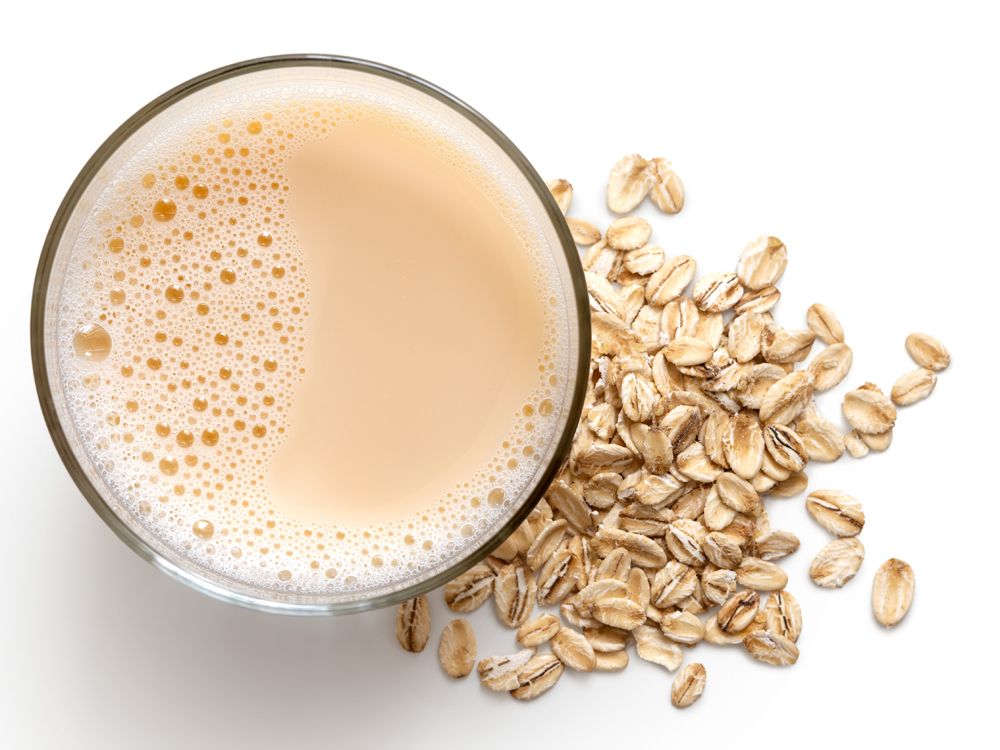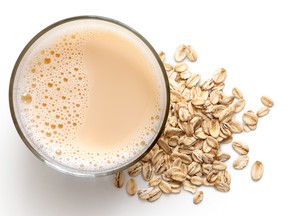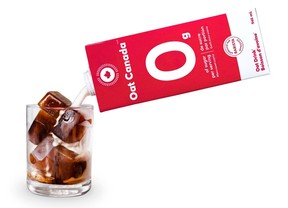French food giant and Toronto company team up to harness the new promise of Canadian oats

Canada is great at growing oats, just not so great at processing them

Article content
Oat Canada, a Toronto-based maker of oat milk, gets its crops from Alberta. But the oats don’t come east, at least not right away. They’re shipped to the United States or Europe to a facility that processes them into a concentrated protein powder. The powder then goes to a production plant in Ontario, where it’s mixed with water, minerals and vitamins, sealed into red tetra packs, and sent to stores in Canada.
Advertisement 2
Story continues below
Article content
It would be easier to do it all at home. But since it started in 2020, Oat Canada hasn’t been able to find a facility in Canada that can do the surprisingly complex work of turning oats into ingredients for dairy substitutes.
“It’s expensive,” said Oat Canada co-founder and CEO Eloise Bucais Ambursley. “Our lead times are much longer.”
That’s the Canadian way. Canada grows more cash crops than almost anywhere in the world, and yet much of it is exported as raw commodities, rather than as processed goods, such as oat-protein powder.

Prime Minister Justin Trudeau’s government sees the boom in plant-based products as a chance to change that old story, and has set up an “innovation supercluster” in Saskatchewan to help grow the food-processing sector into a global powerhouse that could supply a growing market for meat and dairy substitutes with ingredients made with Canadian peas, beans, lentils and grains.
Advertisement 3
Story continues below
Article content
The four-year-old federal supercluster, Protein Industries Canada (PIC), this week announced a small victory in that pursuit. PIC brokered a $4.1 million deal between Oat Canada and Roquette Frères SA, a French food processor, to develop new ingredients using Canadian oats. The deal could establish more oat processing capacity in Canada, helping tap into what is expected to be US$62-billion market for plant-based dairy alternatives by 2030, PIC said.
The supercluster is funding half the cost of the project, with Roquette and Oat Canada splitting the rest. Under the agreement, Roquette will develop oat protein ingredients and Oat Canada will test them. The hope is that Roquette will start supplying Oat Canada with a domestic source of ingredients after the research and development stage, PIC chief executive Bill Greuel said.
Advertisement 4
Story continues below
Article content
“Whether or not that processing will eventually happen in Canada, that’s a business decision that organizations have to make,” Greuel said. “But the first step is developing a novel processing technology to extract and create high protein ingredients here in Canada.”
-

Move over porridge: Oat milk is whipping up an international frenzy and Canada is lapping it up
-

Mrs. Dunster’s dilemma: Volatile wheat market is putting the squeeze on bakers
-

Canadian farmers face volatility as war in Ukraine creates swings in global market for grains, oilseeds
A major benefit of the deal is expanding Roquette’s interest in Canada beyond yellow peas. The French processor opened a $600-million facility in Portage La Prairie, Man. last year to process Canadian yellow peas into inputs for plant-based food manufacturers. The company bills the facility as “the largest pea protein plant on Earth.”
Advertisement 5
Story continues below
Article content
Moving Roquette into oats could help close a gap in Canada. The country has fallen behind in processing technology for the crop, according to one manufacturer. Silk — the top alternative milk brand in Canada, and owned by Paris-based yoghurt giant Danone S.A. — said last year that it was struggling to procure enough processed oat ingredients in Canada to make its oat milk for this market.
“I don’t think Canada had seen the wave coming so they’re kind of trying to close the gap,” Geneviève Bolduc, marketing director of Danone’s plant-based food and beverages division in Canada, said last spring.

For Oat Canada, the deal could mean that it will no longer have to ship oats back and forth across the border, reducing their carbon footprint and freight costs. But the project also promises to improve the oat milk itself, said Jamari Ambursley, chief operating officer, who founded Oat Canada with his wife.
Advertisement 6
Story continues below
Article content
In 2020, the pair fielded offers from each of the six dragons on CBC’s Dragon’s Den show, and ended up choosing Manjit Minhas’ offer of $100,000 for 10 per cent of the business, though the deal was never finalized. Oat Canada is currently producing roughly 60,000 litres a month, with a presence in seven CostCo locations in Ontario and 800 Loblaw stores, the company said.
With the new method, Ambursley said he is expecting an oat base with a higher protein content that will rival cow’s milk, at about eight grams per serving — six grams more than Oat Canada’s current formula. The company will also use the new oat ingredients to experiment with other dairy alternatives.
“This entire project is expanding the utility of oats in Canada,” he said.
• Email: [email protected] | Twitter: jakeedmiston
Advertisement
Story continues below








